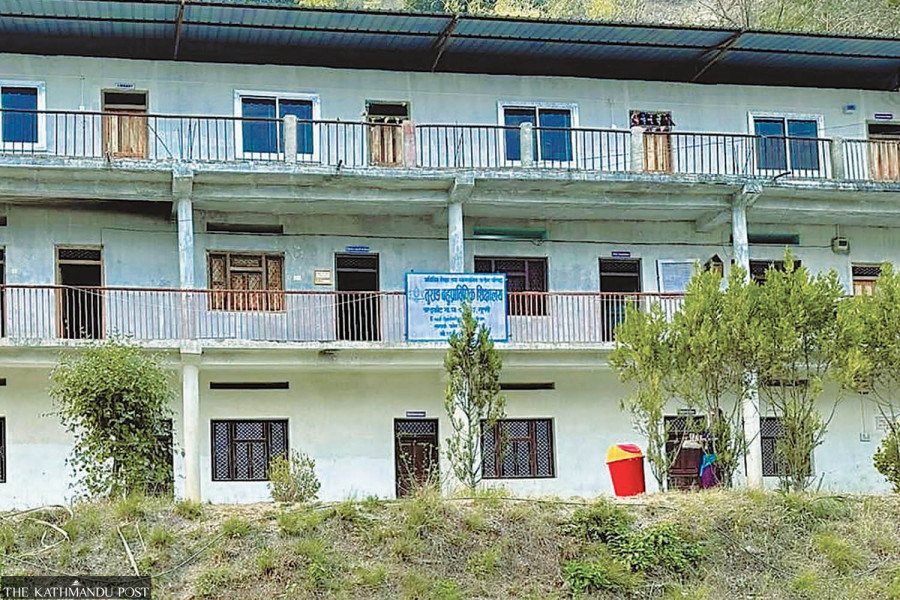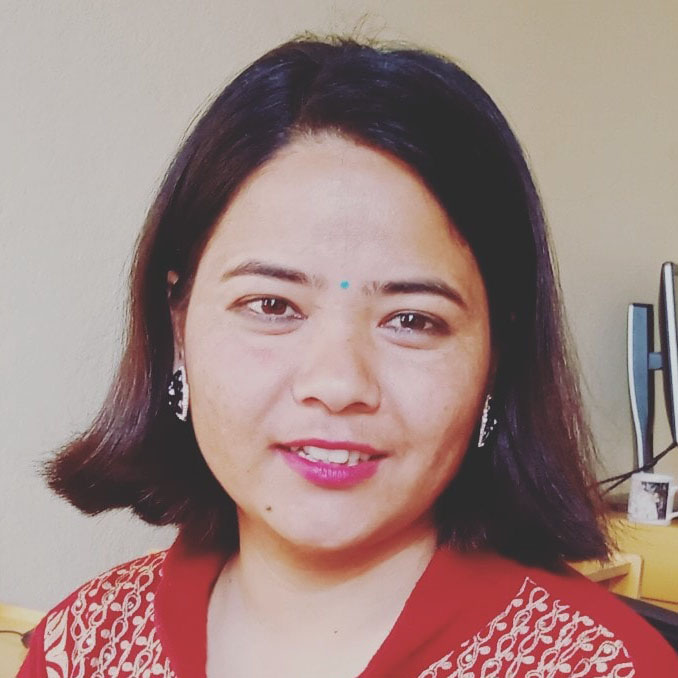Lumbini Province
Gulmi’s technical colleges face enrolment crisis
Turang and Jeeb Raj Ashrit polytechnic institutes struggle with insufficient infrastructure and student interest.
Gaganshila Khadka
Two government-run technical colleges in Gulmi are encountering serious challenges due to low student enrolment. Despite offering nearly free tuition, these institutions are struggling to attract students. The situation is further compounded by inadequate infrastructure, including insufficient classrooms and practical training facilities.
The Turang Polytechnic Institute and Jeeb Raj Ashrit Polytechnic Institute, both offering diploma courses, have reported disappointing enrolment figures this year.
At Turang Polytechnic Institute in Chandrakot Municipality, only 17 percent of the allocated quota for diploma-level courses in agriculture and veterinary science has been filled this year. Out of a total capacity of 80 students—40 in Agriculture (Plant Science) and 40 in Agriculture (Animal Science)—no students enrolled in plant science, while only 14 enrolled in animal science.
After conducting an entrance exam on September 13, the institute has scheduled another test for October 1, aimed at students taking the grade increment examinations of the Secondary Education Examination.
At the Jeeb Raj Ashrit Polytechnic Institute in Ishma Rural Municipality, which offers diploma-level studies in geomatics engineering, only 12 out of 48 available seats have been filled. Last year, there were no enrolments at this institute.
These two institutes are constituent campuses of the Council for Technical Education and Vocational Training (CTEVT) and are fully government-owned, offering very low tuition fees. The total cost for studying geomatics engineering at the Jeeb Raj Institute is Rs57,400 for three years, while fees for plant science and animal science studies at the Turang Institute range from Rs40,000 to Rs50,000.
Government scholarships and grants from local authorities have rendered college fees nearly free for students in the district. Despite this, there is a notable lack of interest among students in pursuing technical education within their own communities.
The CTEVT has allocated scholarships for eight students each in plant science and animal science at Turang. Additionally, Chandrokot and Satyawati rural municipalities have granted scholarships to eight students each, while Kaligandaki and Dhurkot rural municipalities have provided scholarships for six students each. Gulmidarbar Rural Municipality has offered scholarships for four students.
The Matri Sewa Foundation has extended full scholarships to two Dalit students, while Rurukshetra Rural Municipality offers full scholarships to all local residents. Musikot Municipality provides a 50 percent scholarship to all students with permanent residence in the municipality. Through this initiative, arrangements have been made for over 50 students to study free of charge. All 48 students at Jeeb Raj Institute have received full scholarships from Ishma Rural Municipality.
“Students are hesitant to pursue studies in the village, and even those who do enrol are often unwilling to take up agriculture,” says Pradeepraj Pandey, head of Turang Polytechnic Institute.

At Jeeb Raj Institute, a lack of infrastructure and the absence of accommodation for students have resulted in a lack of interest in technical subjects. There are complaints about the unavailability of rental housing, forcing students to stay in remote, dilapidated homes.
Amar Bikram JC, the chief accountant of the institute, highlights the dire situation for students at the college, established in 2019.
“Students coming to study at this college cannot even find a room in the village’s mud houses. While students seeking technical education deserve well-equipped facilities, classes are being conducted in the building of an elementary school,” he said. “How can we expect students to be attracted to such an environment?"
As constituent institutions of the CTEVT, these two institutions incur an annual operating cost of nearly Rs20 million. Turang institute has an annual expenditure exceeding Rs10 million, while Jeeb Raj Institute spends over Rs8.5 million. Local residents express frustration that despite substantial government investment, the absence of students results in wasted resources.
The institutes established without adequate infrastructures face significant challenges due to the lack of necessary land for housing, study, and practical training facilities. The Turang institute operates within the Tikaram Campus, which provides seven rooms, while the institute has constructed six additional rooms. Despite recently acquiring approximately 45 ropani [2.29 hectares] of land, the institution reports ongoing difficulties, particularly concerning practical training and related activities.
“Locals donated and raised funds to purchase about 45 ropani of land that is now owned by us,” said Pandey, the principal of the institute. “As we are running the institute in a makeshift building, there is a lack of space for laboratories, libraries, and other essential facilities. Even though we have rented 10 ropani (0.51 hectares) of land for practical activities, there is still no shelter for livestock.”
The high rent for accommodation is also a concern for both instructors and students.
“House rents range from Rs3,000 to Rs5,000 in the area,” said a student at Turang. “Rents are not as high as this even in the district headquarters.”
The Jeeb Raj Institute is located in a village lacking any infrastructure. Classes are conducted in the building of Kumari Elementary School in ward 5 of Ishma, while the offices are situated about a kilometre away. There are no rooms available in the village’s mud houses for students to rent, making accommodation a significant challenge.
The institution said establishing a technical college in such an unsuitable location, without proper infrastructure and local commitment, has led to severe difficulties.
“If land had been provided, we would have built our own infrastructure by now, but we still haven’t received any land,” said chief accountant GC.
The land promised for the polytechnic institute has become a point of contention among local representatives, leaving the college in limbo. Initially intended for the institute, the land in Ishma-6 has been designated for a stadium. Meanwhile, a 52-ropani (2.65 hectares) plot allocated for the institute by the federal government has been registered in the name of the local municipality under the previous leadership.
The current administration has opted to lease land registered in the municipality's name to the institute for 30 years. However, the lack of student interest in the area has left the CTEVT hesitant to invest in the project.
Staffers at the institute report various issues, including the lack of laboratories, libraries, accommodation for teachers, and a shortage of part-time instructors. “Most CTEVT constituent colleges have residential facilities, but here, with no rooms available, it’s impossible to retain technical staff in rural areas,” said GC. He said finding local teachers for subjects like English, Nepali, physics, maths, and chemistry is challenging. As a result, these subjects have not been taught this academic session due to the lack of instructors.




 21.02°C Kathmandu
21.02°C Kathmandu













